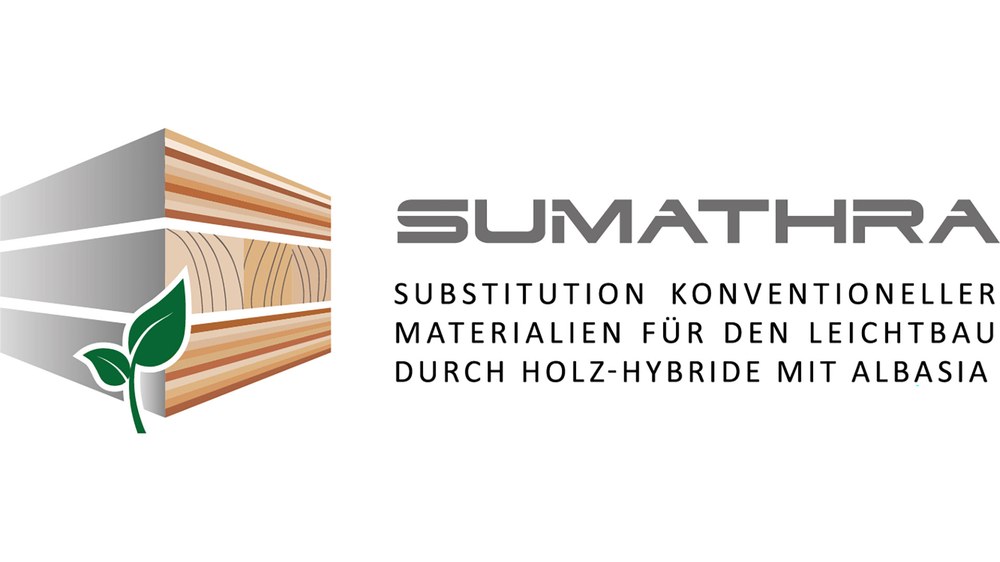One way to resolve this conflict is to use sustainable lightweight materials, such as wood. Due to its low density in combination with excellent mechanical properties, Albasia, the wood of the Sengon tree (bot.: "Paraserianthes falcataria"), is of particular interest here and offers high potential for sustainable lightweight construction, especially in combination with other materials as hybrid and sandwich materials.
In the "SuMatHrA" project (acronym for Substitution of conventional materials for lightweight construction by wood hybrids based on Albasia), which is funded by the German Federal Ministry for Economic Affairs and Climate Action (BMWK) via the Jülich Forschungszentrum as project executing organization over a period of three years, four partners from industry and science as well as a non-profit organization have joined forces to drive forward the development of innovative wood hybrid material systems for lightweight construction. A key aspect is the substitution of CO2 -intensive materials used in vehicle and elevator construction. By characterizing the hybrid material systems and developing numerical simulation models, the sustainable materials should find their way into applications for future electromobility.
The consortium of the "SuMatHrA" project consists of the following partners:
- Alfred Kiess GmbH
- Broszeit GmbH
- German Aerospace Center e.V.
- Fairventures Worldwide FVW gGmbH
- Volkswagen Aktiengesellschaft
The Institute of Vehicle Concepts of the German Aerospace Center (Deutsches Zentrum für Luft- und Raumfahrt; DLR), with its department "Materials and Process Applications for Road and Rail Vehicles", specializes in translating new and complex material solutions into innovative applications based on a comprehensive overall understanding of the vehicle. In the course of the "SuMatHrA" research project, DLR supports the project partners throughout the entire product development process, from conception, design and simulation to testing and final evaluation.

